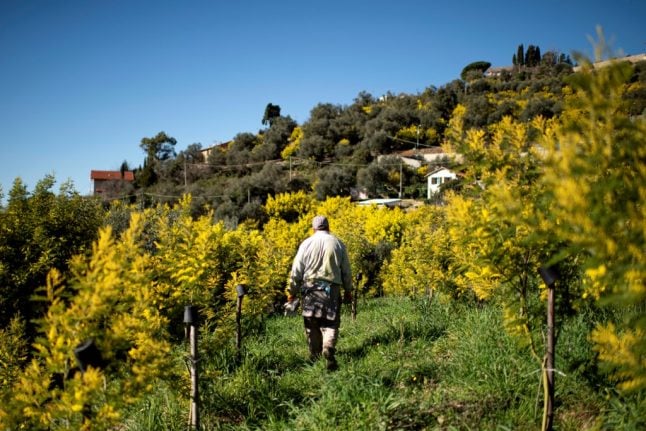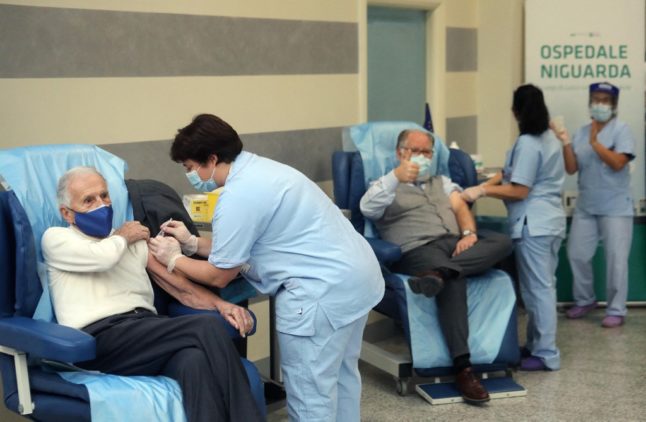Italian farmers are being brought to their knees by a six-week lockdown aimed at stopping a deadly epidemic in its tracks. They are also suffering a drought caused by the driest spring in more than half a century.
Border blocks, restaurant closures and a lack of seasonal workers mean nearly four out of ten businesses in the fruit and vegetable sector are struggling, according to Italy's biggest agricultural union Coldiretti.
READ ALSO: How you can help Italy during the coronavirus crisis
On the Fanizza family farm in Fasano, a town near the Puglia coast in southern Italy, some pickers, fearful for their health, stayed at home as the country went into shutdown at the start of March.
That meant there were not enough hands to harvest the celery and turnip crops, which were ruined. The clock is now ticking on seeding vegetables for harvesting this summer.
“To sow properly, we need seven or eight people,” 41-year-old Fanizza says. “We hope we'll be able to find them, otherwise we will have to reduce production.”
Some 350,000 foreign labourers are usually employed seasonally in Italy's agriculture sector. The coronavirus crisis means this year there is a shortage of between 250,000 and 270,000, according to the farming ministry.
READ ALSO:
- When will it be possible to travel to Italy again?
- Why readers in Italy say lockdown must continue despite 'financial strain and heartbreak'
- When will Italy's lockdown 'phase two' begin and what will it involve?
“Something must be done urgently, as the harvests of strawberries, asparagus, artichokes and greenhouse fruits (such as melons, tomatoes and peppers) are already underway,” Coldiretti said in a note. And others will soon begin, such as cherries, apricots and plums, it said.
The production crisis could impact food availability.
With Romanians alone accounting for 110,000 of the country's 350,000 foreign seasonal workers, Rome is in talks with Bucharest over “green corridors” to ease movement between the two countries.
Minister of Agriculture Teresa Bellanova has also called for mass regularisation of undocumented migrants in Italy in order to get the economy moving again.
Many are currently living in shanty towns and are exploited by the mafia and an illegal labour system known as “caporalato”, where intermediaries who bring workers to farmers take a large part of their meagre wages.
The proposal, approved by Coldiretti, was slammed by the far-right.

A dairy farmer in Piedmont. Photo: Marco Bertorello/AFP
Italy's agricultural sector is the third biggest in Europe in terms of overall value — it was worth €56.6 billion in 2019 — after France (€75.4 billion) and Germany (€57 billion).
The virus is not the farmers' only problem. Italy is also experiencing its driest spring in the last 60 years.
It has seen just over half its usual rainfall since the beginning of the year, creating a water shortage the size of Lake Como — the third largest lake in Italy, according to weather experts.
READ ALSO: Solidarity food baskets hang from Naples balconies to help those in need
“It hasn't rained for a long time and the land is arid, especially for wheat,” farmer Fanizza says. “The situation is critical, we need to irrigate our fields.”
The government has set up a €100 million fund to support agricultural businesses.
Rome has also forked over €50 million to buy food and distribute it to Italy's poorest, a three-pronged approach aimed at helping the hungry, cutting waste and preventing price drops.



 Please whitelist us to continue reading.
Please whitelist us to continue reading.
Member comments